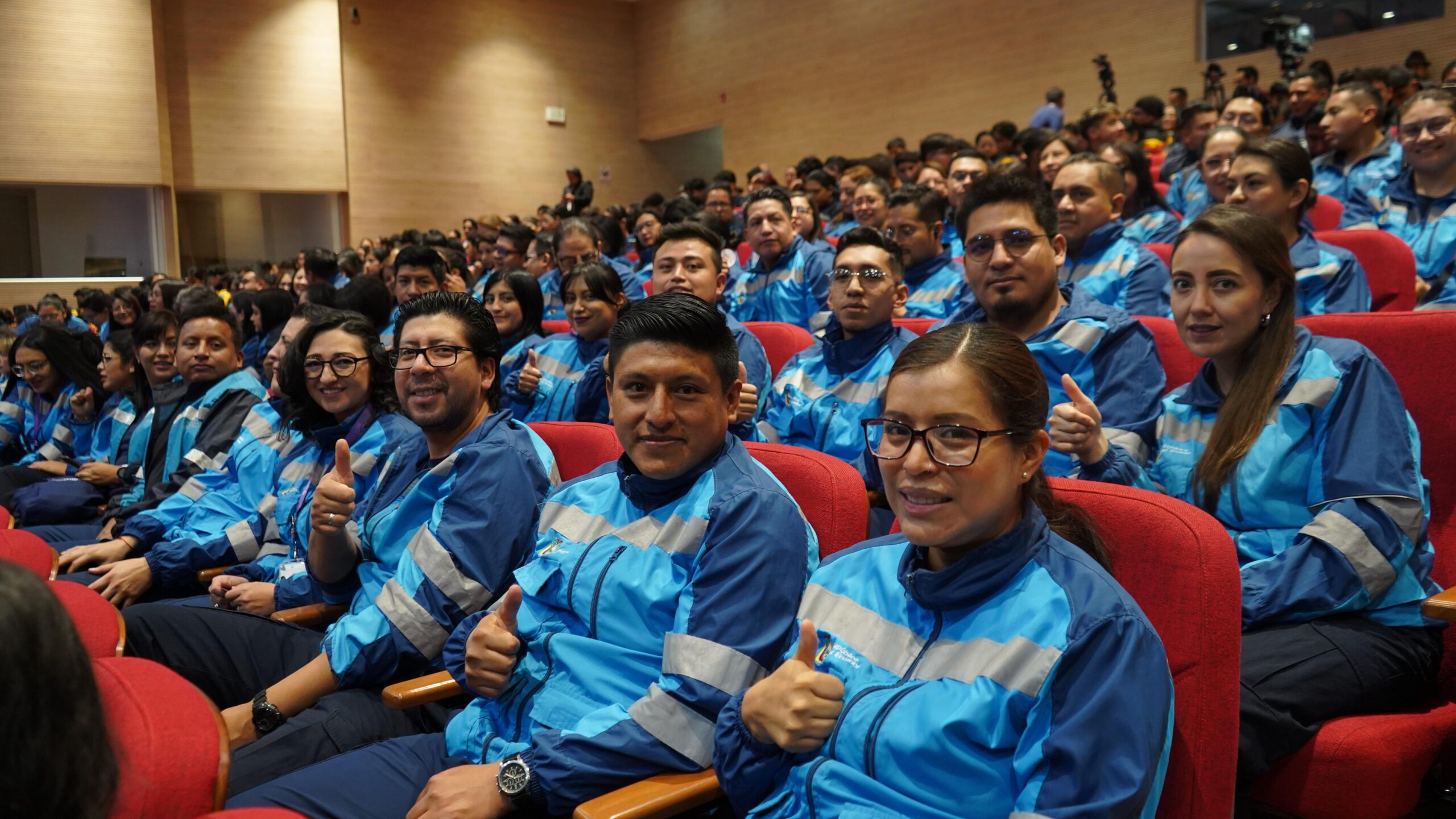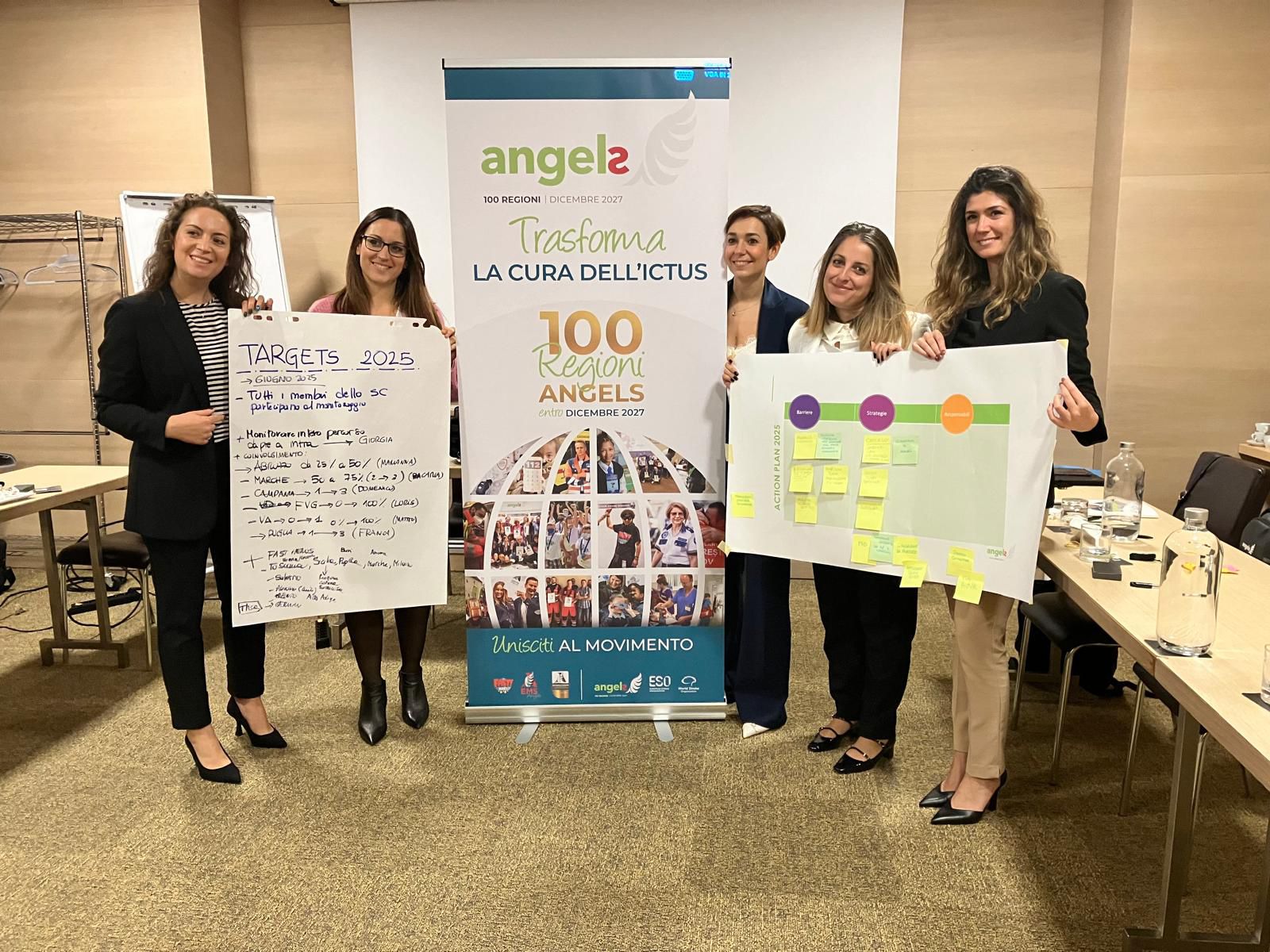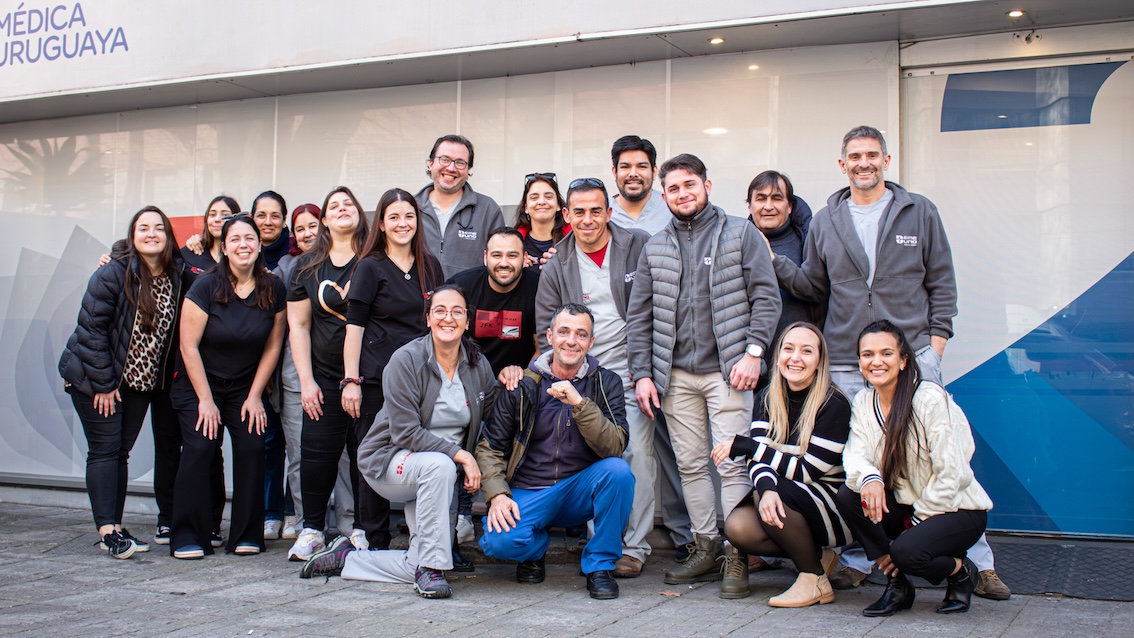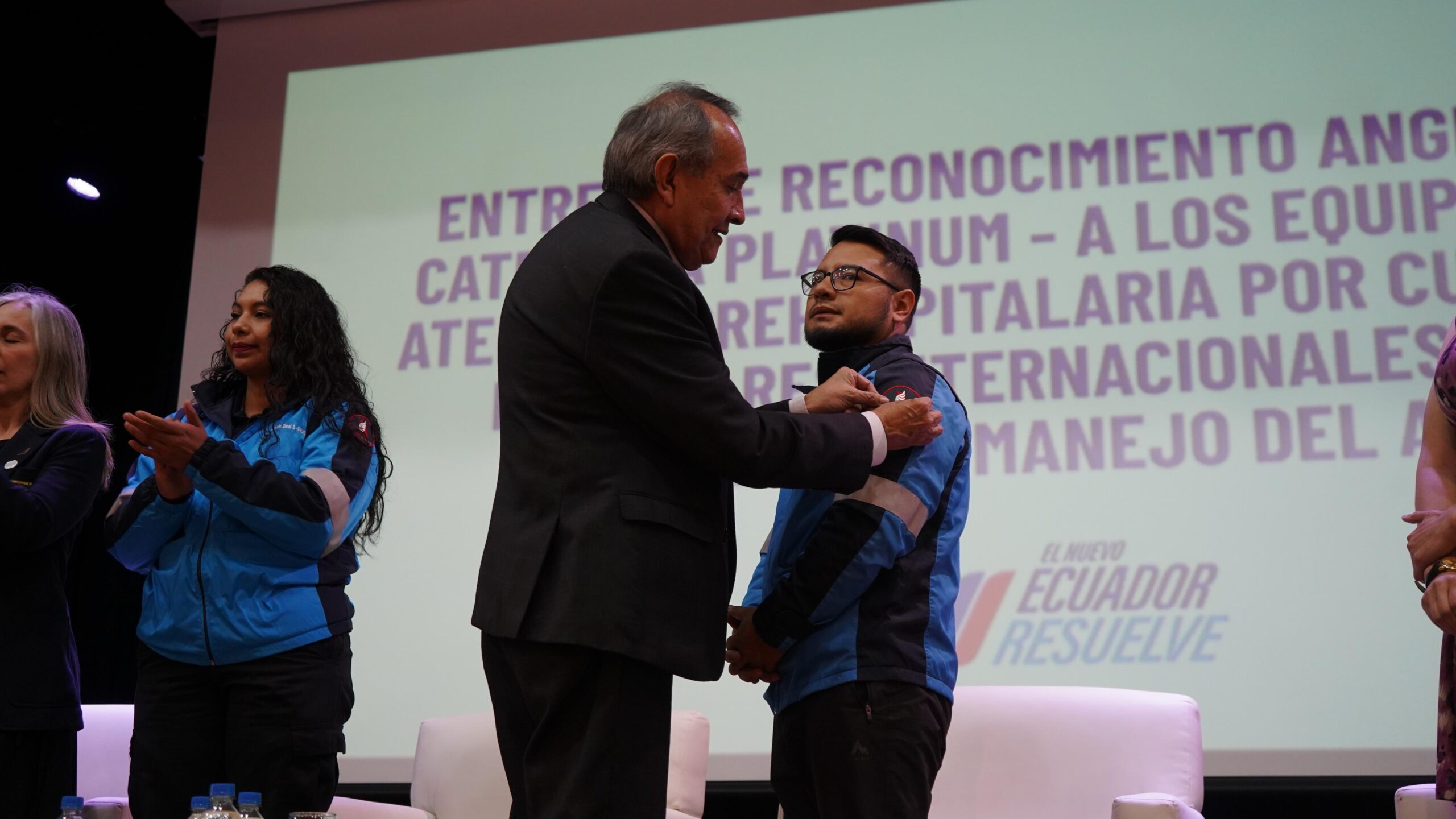
Vous remarquerez peut-être quelque chose de différent concernant les ambulanciers travaillant dans les zones de coordination 2 et 9 préhospitalières de la province de Pinchincha. L’un est qu’ils portent un air de fierté incontestable. La deuxième est la raison pour laquelle ils tiennent la tête si haut : les badges Angels sur leurs manches gauches les marquent comme les gagnants du premier Prix Angels SMU de l’Équateur pour l’excellence dans les soins pré-hospitaliers pour accident vasculaire cérébral .
La présentation de ces badges au personnel opérationnel a été un point fort de la cérémonie de remise des prix à Quito, explique le Dr Verànica Pacheco, médecin urgence et spécialiste de la Direction nationale des services de santé mobile du ministère de la Santé publique de l'Équateur.
"Cette reconnaissance est d'une grande importance, puisque le travail effectué par les services de soins pré-hospitaliers n'est généralement pas reconnu.Avoir ces badges attribués par le ministre de la Santé publique, le Dr Antonio Naranjo Paz y MiÊto, a renforcé l'impact positif. Ce fut un moment important et émotionnel qui motivera d'autres équipes du pays à s'efforcer d'obtenir ce prix."
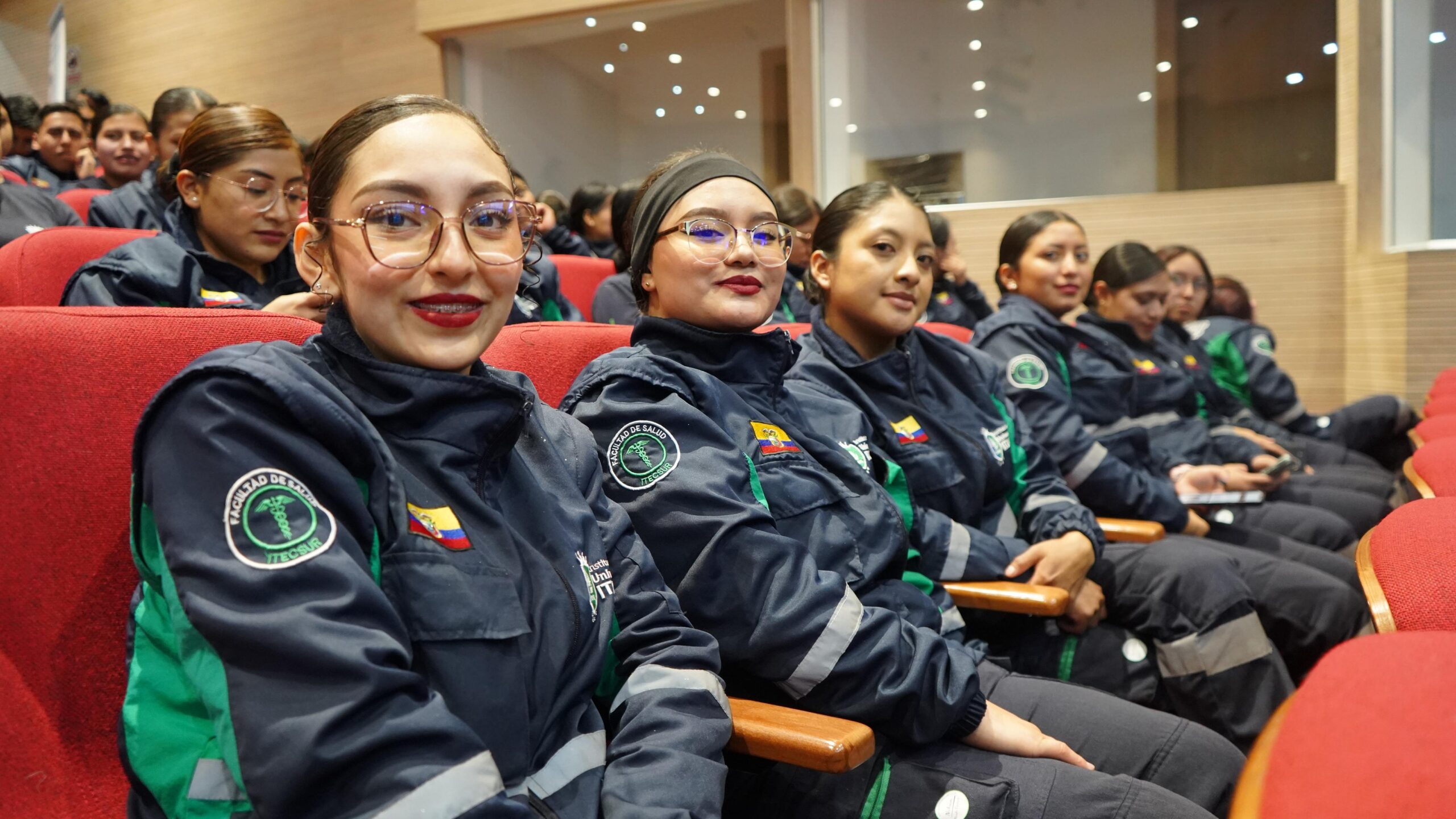
Le Dr Pacheco n’a pas eu de petite part dans cette réussite. Elle a dirigé le développement du premier protocole national pour les soins pré-hospitaliers pour accident vasculaire cérébral en Amérique latine, en formulant des directives qui sont maintenant mises en œuvre dans tout le pays.
En tant que gardien d’un accord entre l’Initiative Angels et le Ministère de la Santé publique, le Dr Pacheco joue un rôle clé facilitant la formation des professionnels soins de santé à la prise en charge appropriée de l’accident vasculaire cérébral, y compris les simulations menées dans les hôpitaux publics. Le résultat de ces efforts est l’expansion de la couverture des soins pré-hospitaliers pour accident vasculaire cérébral et du réseau de centres d’accident vasculaire cérébral accrédités, avec des hôpitaux à Téna, Macas et Latacunga bientôt nécessaires pour la certification, ainsi que l’Hôpital général Enrique Garcés à Quito.
Selon le Dr Pacheco, les longues distances séparant les villes et les petites villes des hôpitaux prêts à la prise en charge des accident vasculaire cérébral cérébraux imposent de lourdes exigences aux services de transport médical d’urgence, ce qui fait du remplacement des unités ambulance une priorité. Actuellement, 158 ambulances avancées de réanimation sont livrées dans des endroits stratégiques pour fournir une couverture adéquate aux patients nécessitant des soins d’urgence, y compris pour un accident vasculaire cérébral.
La création du protocole pour la prise en soins pré-hospitaliers pour accident vasculaire cérébral et sa mise en œuvre dans les secteurs public et privé a été une première étape vitale. Le protocole a été façonné par un processus de réunions avec le personnel opérationnel et de consultations avec les médecins urgence, explique le Dr Pacheco. L’un de leurs objectifs était de standardiser l’utilisation d’échelles dans l’évaluation préhospitalière ; ils ont finalement opté pour trois échelles qui s’adaptent à la réalité actuelle du système de santé.
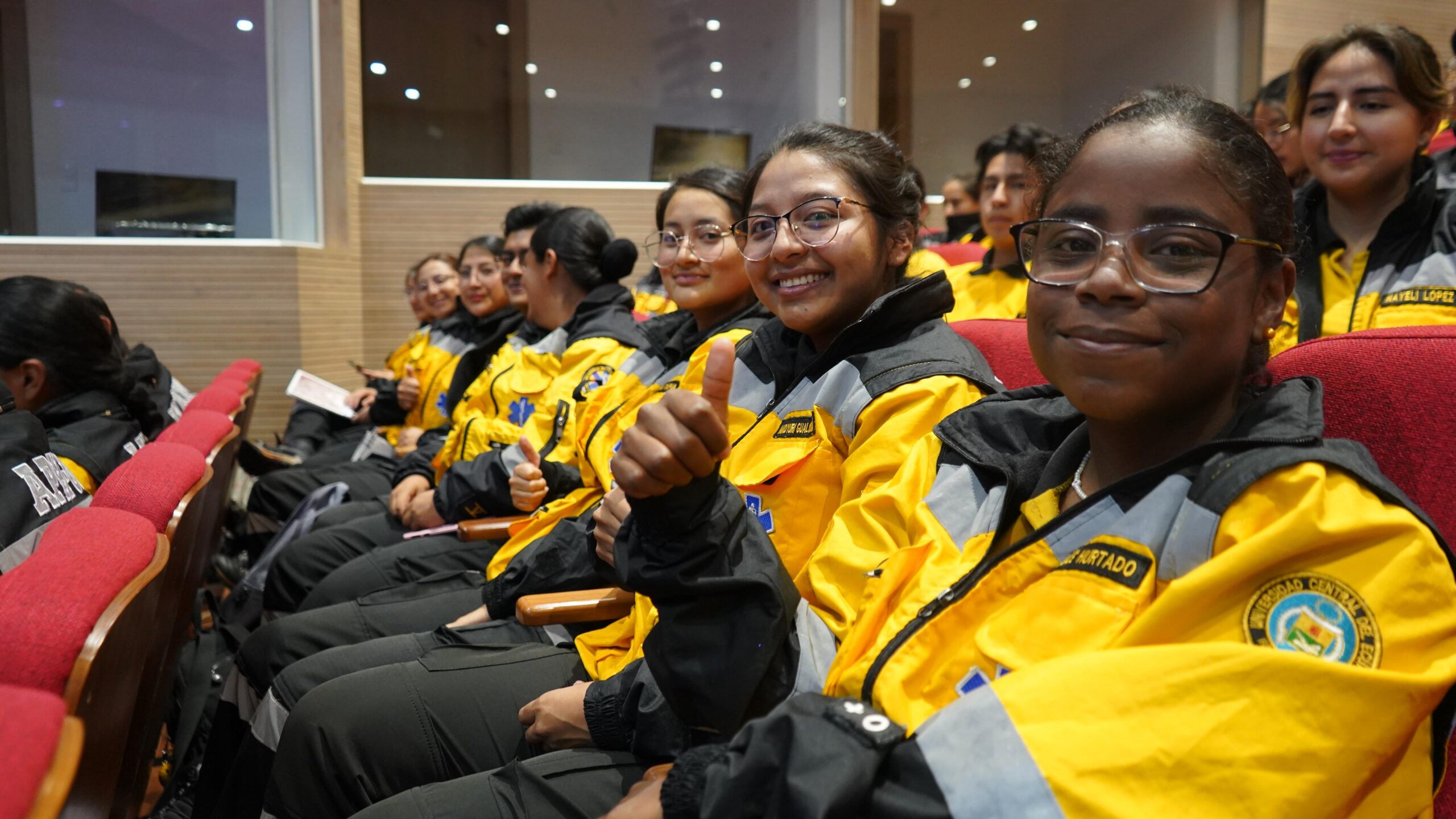
Une autre priorité est la formation en personne, fréquemment dispensée par des médecins qui ont participé à la rédaction des directives. L’impact de cette approche personnelle de la formation est similaire à celui de remporter des prix, suggère le Dr Pacheco. Dans les deux cas, cela encourage le personnel ambulance en instillant un sentiment d’appartenance et en sachant qu’il est une partie très importante de toute équipe de soins neuro-vasculaires.
Les équipes de soins pré-hospitaliers de la Zone 2 et de la Zone 9 ont commencé leur parcours de récompenses en mai 2024. En juin, un examen de leurs données a montré qu’elles étaient en dessous de la barre dans deux des domaines couverts par les critères d’attribution. Le Dr Pacheco explique : "En Équateur, nous avons besoin de l'acceptation de l'hôpital avant qu'un patient puisse être transporté à l'hôpital, nos temps sur les lieux ont dépassé ceux stipulés dans les paramètres de qualité. Notre personnel préhospitalier n'enregistrait pas non plus les médicaments des patient, information cruciale pour la décision de traiter l'accident vasculaire cérébral".
La mise en œuvre de Càdigo Rojo (code rouge) a été l’une des mesures prises pour remédier à ces lacunes, ce qui élimine la nécessité d’une acceptation préalable par les hôpitaux pour les patients victimes d’accident vasculaire cérébral. Au lieu de cela, les hôpitaux sont prénotifiés qu’un patient ayant subi un accident vasculaire cérébral est en route.
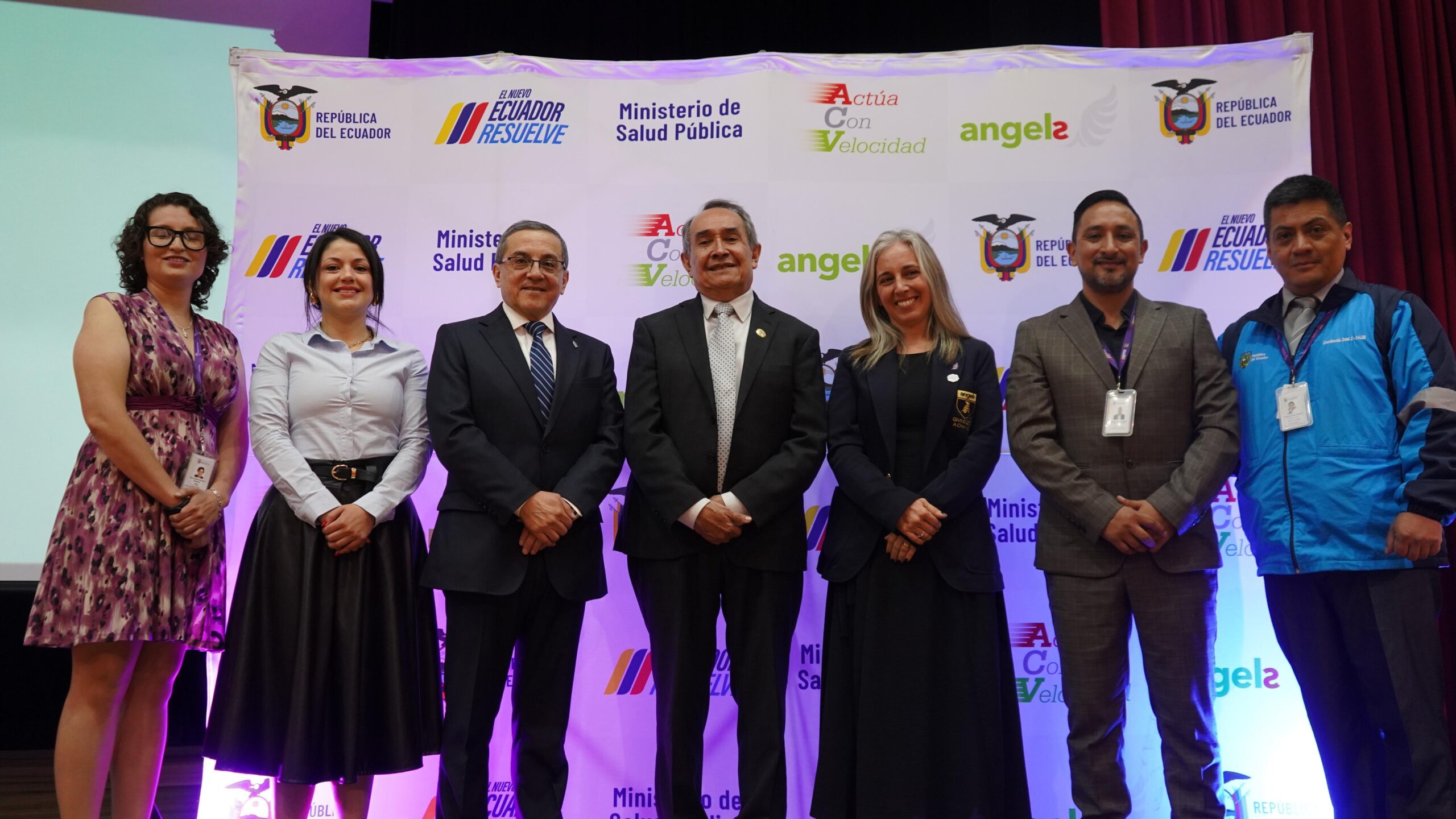
L’amélioration de la qualité des soins pré-hospitaliers complète le cercle des soins de qualité pour les patients ayant subi un accident vasculaire cérébral, explique le Dr Pacheco. "Il est important pour les équipes hospitalières et ambulance d'avoir de bonnes relations, de parler la même langue et de travailler ensemble pour optimiser les temps et sauver autant de vies que possible dans notre pays."
La médecine est héréditaire. Son père et ses deux frères sont également des médecins et leur mère est une infirmier/ère. L’impulsion pour aider les gens fait donc partie de son ADN. Mais cela sauvait des vies qui ont conduit le Dr Pacheco à la médecine d’urgence, explique-t-elle.
"C'est vraiment ma passion d'être là au moment où les gens ont besoin de moi, au moment où quelqu'un arrive ayant besoin de soins d'urgence, et d'avoir l'occasion de fournir de l'aide et de sauver une vie. Par-dessus tout, d'être là à ce moment-là, c'est tellement difficile pour tout le monde, et de fournir des soins calmement".
Elle adore la médecine d’urgence, explique le Dr Pacheco. "Je ne changerais pas ma spécialité pour rien. Cela a été un facteur très important dans ma vie. Cela m'a permis d'être présent dans de nombreux moments difficiles pour certaines personnes, de sauver des vies et de redonner à quelqu'un sa famille ou sa qualité de vie. Ça a été crucial dans ma vie".
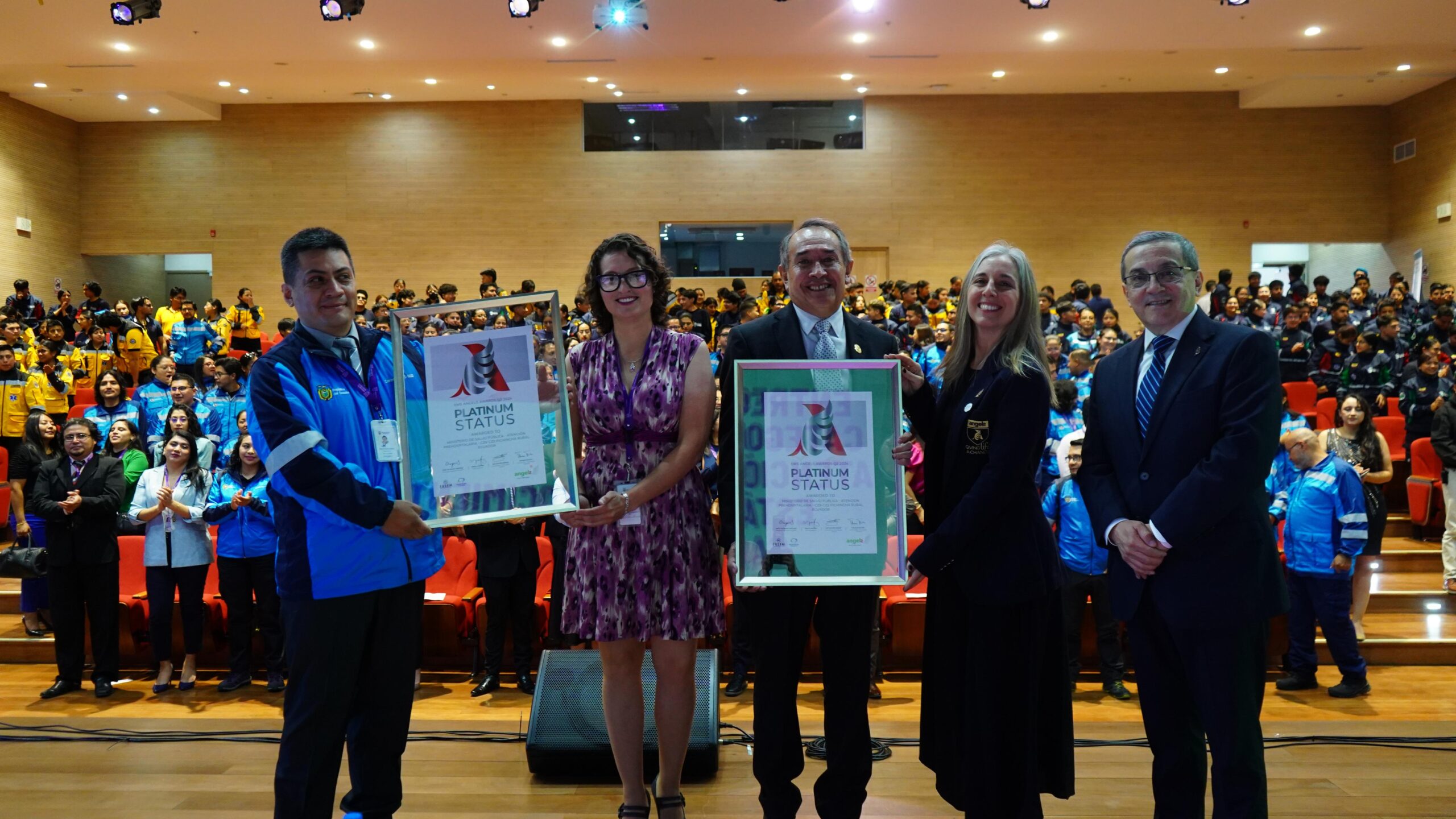
Les soins neuro-vasculaires sauvent également des vies, et le déploiement de la mise en œuvre du protocole de l’accident vasculaire cérébral dans le secteur préhospitalier offre au Dr Pacheco et à son équipe une vaste plateforme pour faire ce qu’elle aime. Pinchincha n’est que le point de départ, explique-t-elle. "Nous avons commencé à travailler dans ce domaine parce que c'est là que se trouve la capitale et la plus grande concentration de personnes ayant besoin de soins. Nous savions que si nous remportions ce prix, nous pourrions utiliser ce que nous avons appris pour développer des stratégies pour des équipes préhospitalières plus petites ou celles qui travaillent dans des zones moins densément peuplées. Nous savons que nous devons adapter et modifier notre approche pour réussir dans toutes les régions ou provinces en Équateur, et nous y parvenons.
"Je pense qu'en quelques mois il y aura une autre équipe préhospitalière sur une scène à reconnaître pour la qualité de leur soins neuro-vasculaires".
Vous pourrez les distinguer par l'aile blanche sur leur manche gauche.
